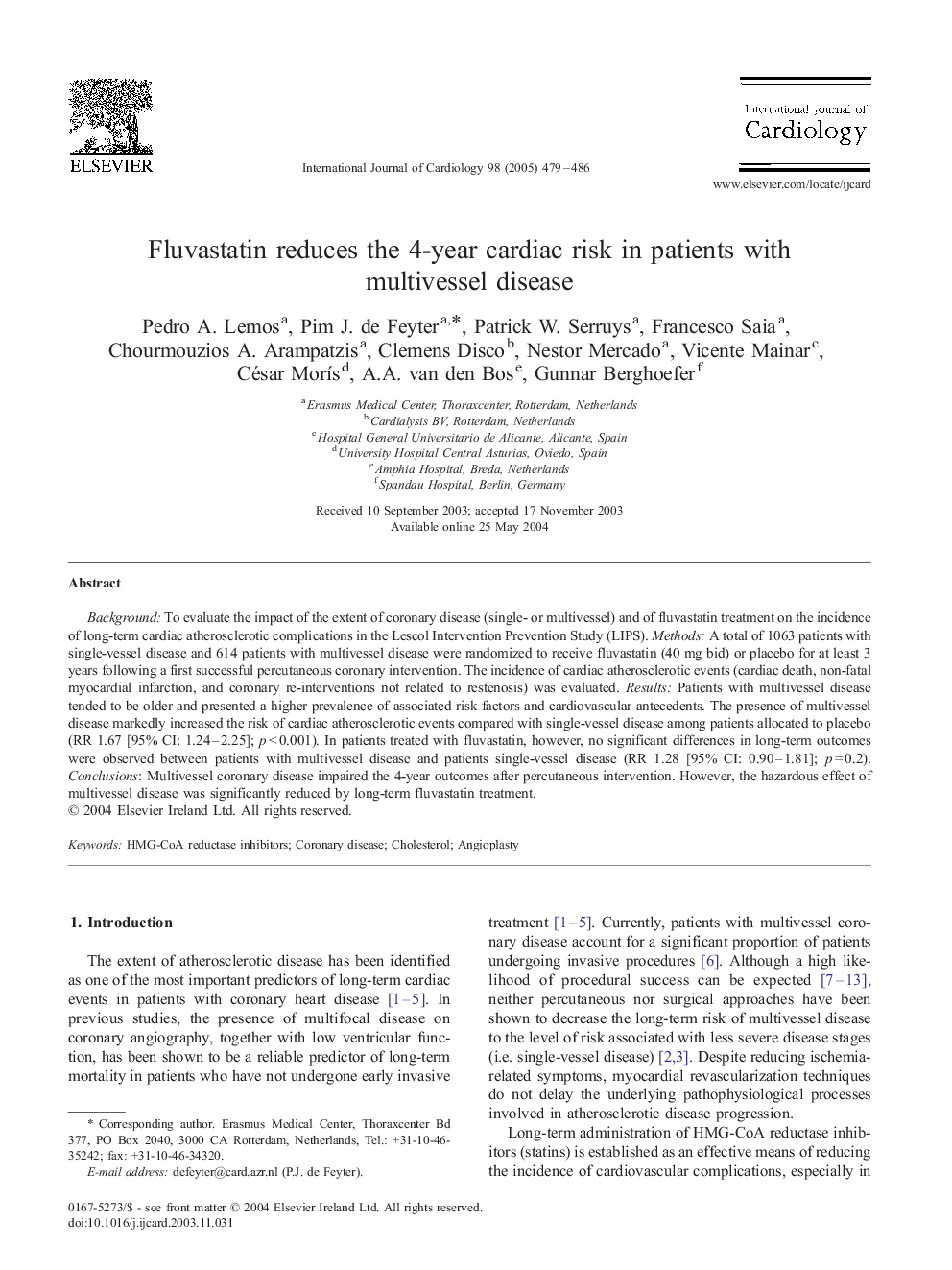| Article ID | Journal | Published Year | Pages | File Type |
|---|---|---|---|---|
| 9957093 | International Journal of Cardiology | 2005 | 8 Pages |
Abstract
Background: To evaluate the impact of the extent of coronary disease (single- or multivessel) and of fluvastatin treatment on the incidence of long-term cardiac atherosclerotic complications in the Lescol Intervention Prevention Study (LIPS). Methods: A total of 1063 patients with single-vessel disease and 614 patients with multivessel disease were randomized to receive fluvastatin (40 mg bid) or placebo for at least 3 years following a first successful percutaneous coronary intervention. The incidence of cardiac atherosclerotic events (cardiac death, non-fatal myocardial infarction, and coronary re-interventions not related to restenosis) was evaluated. Results: Patients with multivessel disease tended to be older and presented a higher prevalence of associated risk factors and cardiovascular antecedents. The presence of multivessel disease markedly increased the risk of cardiac atherosclerotic events compared with single-vessel disease among patients allocated to placebo (RR 1.67 [95% CI: 1.24-2.25]; p<0.001). In patients treated with fluvastatin, however, no significant differences in long-term outcomes were observed between patients with multivessel disease and patients single-vessel disease (RR 1.28 [95% CI: 0.90-1.81]; p=0.2). Conclusions: Multivessel coronary disease impaired the 4-year outcomes after percutaneous intervention. However, the hazardous effect of multivessel disease was significantly reduced by long-term fluvastatin treatment.
Related Topics
Health Sciences
Medicine and Dentistry
Cardiology and Cardiovascular Medicine
Authors
Pedro A. Lemos, Pim J. de Feyter, Patrick W. Serruys, Francesco Saia, Chourmouzios A. Arampatzis, Clemens Disco, Nestor Mercado, Vicente Mainar, César MorıÌs, A.A. van den Bos, Gunnar Berghoefer,
